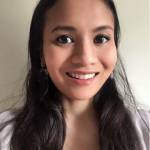
I have given considerable thought to the importance of writing this article. While I wholeheartedly support the participation of individuals from cultures where FGM/C (female genital mutilation/cutting) is not practiced in advocacy efforts, I have become increasingly uncomfortable with certain stereotypical responses in this space. Transcending discussions on harm and culture, especially for those unfamiliar with FGM/C practices in Malaysia, is undeniably challenging. Nevertheless, everyone, regardless of background, has a right and responsibility to condemn violence against women and children and advocate for positive change. I fully agree that this is not a form of Western soft colonisation, contrary to what some Malaysians want to believe; international pressure can be crucial in ending harmful practices like FGM/C.

I respect those who have taken the time to study the issue, connect with local activists, and understand the movement to end FGM/C in Malaysia, and who then collaborate with us to eliminate this practice. However, I am cautious about superficial comments born out of ignorance about FGM/C practices in Malaysia. It is not entirely my responsibility to educate others; there are ample resources available for those who seek to understand. There are respectful ways to ask questions and I am more than happy to answer questions. Approaching the subject respectfully is essential, yet many prefer to provoke, believing it will garner more attention on social media. Some may argue that this raises awareness, but as a Malaysian, I can attest that it does not contribute to ending FGM/C in Malaysia.
Increasingly, I have witnessed the dehumanisation of Malaysian Muslim women, reducing them to the status of their supposedly cut clitorises. One such instance involved a comment on a LinkedIn post I had reshared from another author not too long ago, celebrating successful Malaysian Muslim women.
Although the commenter praised their achievements, they added, “But what about FGM? Is there the will and movement to stop this?” This remark transformed the compliment into a back-handed one. Despite numerous posts I shared on LinkedIn about FGM/C that garnered little response, this particular post drew unexpected attention. But why? The original author who saw the comment was not impressed at all; I don’t think I need to repeat what she said! (Because you folks cannot handle it when it is reversed to you).
Viewing Malaysian Muslim women merely as sexually oppressed individuals with cut clitorises is a reductionist perspective that disregards our humanity and individuality. Cultural and religious practices are complex and must be approached with sensitivity and respect, not sensationalism. Harmful practices against women are not exclusive to so-called “uncivilised” cultures; they can arise from any culture. Having lived in both the UK and Malaysia, I do not believe one culture is superior to the other. There are many aspects of Malaysian culture that I am proud of, and areas where I believe Malaysia could learn from the UK. Similarly, there are many aspects of the UK that I admire, and areas where I think Malaysia surpasses the UK.
I recall seeing a patient who had undergone FGM/C as a young girl, attending an antenatal appointment. She was in tears, fearing being seen as a woman from a “barbaric” culture and lamented how others had treated her like a “poor little thing,” as if she lacked the intellect to make her own decisions. She despised being treated that way, and I despised it for her. She wanted to be treated like any other woman, and not make FGM/C the sole focus of her antenatal care. When treating survivors of any gender-based violence, it is essential not to infantilise them, which could lead to secondary psychological trauma.
In Malaysia, not all Muslim women identify as survivors of FGM/C, and many would find this term offensive if applied to them. Which brings us to the question – are we, Malaysian Muslim women, oppressed? Is it right for other people to tell us that we are oppressed? Is it true that the oppressed do not realise that they are being oppressed?”
I do not want to go into detail why FGM/C is practised in Malaysia (you can read all about it here.) The reasons for this practice range from a lack of understanding about religious requirements to wanting to control a woman’s sexual libido. The idea behind the practice is oppressive. But Malaysian women are probably not oppressed solely because of this practice. It is overly simplistic to say that Malaysian Muslim women are sexually oppressed. Moreover, societies worldwide, and not just the Malaysian society often perceive women through the medical gaze2 , reducing them to mere vessels for reproduction (eg. The overturning of Roe v Wade, which overturned the constitutional right for women access to safe abortion in the USA). This underscores the importance of understanding the forces that shape societal views of oppression and developing a nuanced analysis of oppression that does not regard women of colour outside the Western world as “easy victims.” When I highlight the differences between the FGM/C practices in Malaysia and those in Africa, I am not downplaying its impact on Malaysian women, nor am I implying cultural superiority over others. There is no cultural superiority in any form of gender-based violence, no matter how minimal it is. The differences include a lack of long-term physical complications, though immediate complications can occur due to an infant’s clitoral anatomy, and there is a scarcity of studies on psychosexual dysfunction following the Malaysian practice. My intention of writing this article is to emphasise the importance of educating oneself on the specific nuances of the practice before proposing solutions. It is likely that local perspectives have already been considered in addressing this issue.
Having said that, by no means we are not open to ideas to end this practice. Please remember that Malaysian women are not empty vessels walking around to be filled in with “education” from the West. Rather, we are open to collaborative efforts that respect our agency and expertise in finding solutions to end FGM/C in Malaysia.
More from Dr. Hannah Nazri here.
BCPHR.org was designed by ComputerAlly.com.
Visit BCPHR‘s publisher, the Boston Congress of Public Health (BCPH).
Email [email protected] for more information.
Click below to make a tax-deductible donation supporting the educational initiatives of the Boston Congress of Public Health, publisher of BCPHR.![]()
© 2025-2026 Boston Congress of Public Health (BCPHR): An Academic, Peer-Reviewed Journal
All Boston Congress of Public Health (BCPH) branding and content, including logos, program and award names, and materials, are the property of BCPH and trademarked as such. BCPHR articles are published under Open Access license CC BY. All BCPHR branding falls under BCPH.
Use of BCPH content requires explicit, written permission.